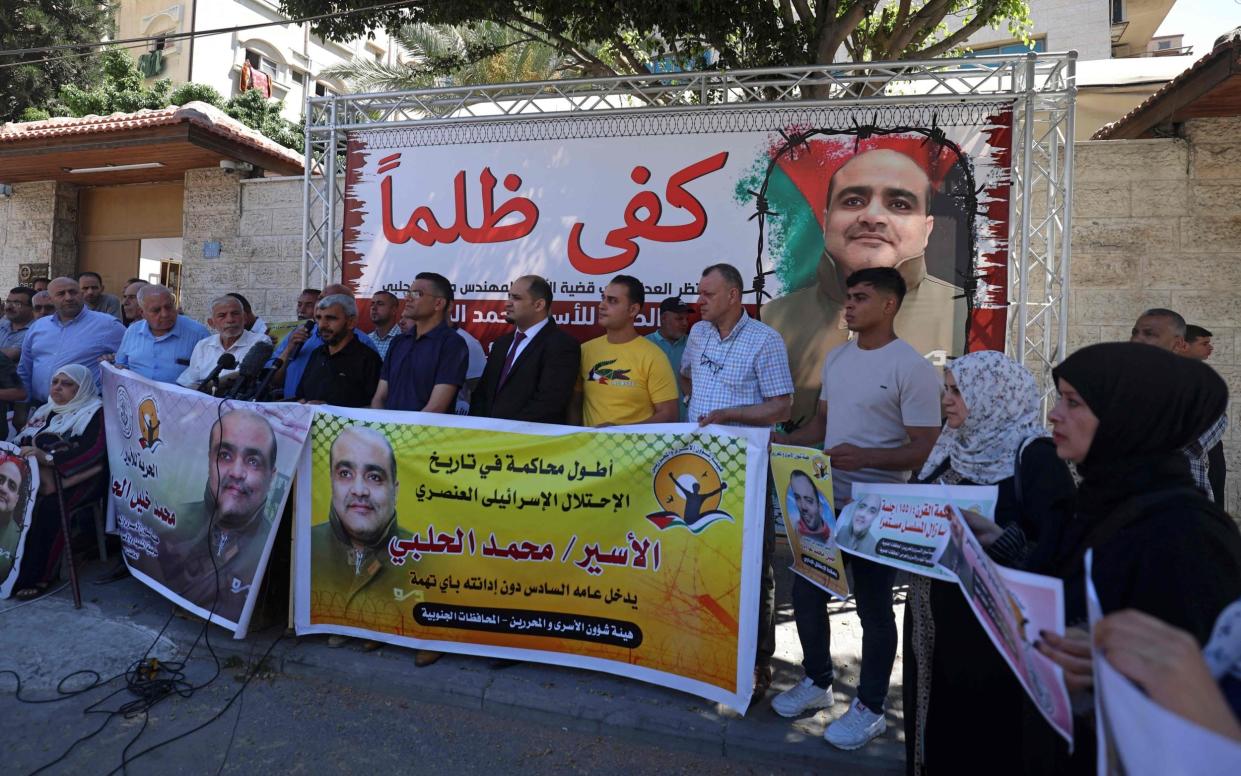UN rebukes Israeli court as it finds charity worker guilty of aiding Hamas

An Israeli court found a Palestinian World Vision employee guilty of terrorism charges on Wednesday, six years after his arrest in a case slammed by the United Nations and human rights groups for lacking evidence.
Prosecutors alleged that Mohammed el-Halabi abused his position as Gaza director for the international Christian charity to funnel millions of dollars to Hamas, the Islamist militant group.
Mr el-Halabi and his employer maintain his innocence.
“It’s really shocking,” said Maher Hanna, his lawyer, after the verdict, claiming the judgment had “nothing to do with the evidence presented in court”.
Mr Hanna said his client, who has been detained since 2016, refused several plea bargain offers that would have set him free on account of his innocence.
Shin Bet, Israel’s internal security agency, alleged that Hamas recruited Mr el-Halabi in 2004, tasking him with infiltrating World Vision so that he could exploit the organisation’s funds and aid work to finance weapons purchases and the construction of tunnels into Israeli territory.
Following his arrest, Mr el-Halabi was interrogated by Shin Bet agents for 50 days without access to a lawyer, during which time he says he was tortured, deprived of sleep and hung from a ceiling.

Israel hailed Mr el-Halabi’s arrest as evidence that Hamas was diverting aid to Gaza, with a former prime minister trumpeting the charges in a video. Aid organisations say the case has had a chilling effect on their activities in the besieged enclave.
Wednesday’s ruling said the details of the verdict were “confidential and cannot be made public”.
But it referred to a confession by Mr el-Halabi that has not been made public. Mr Hanna has said the confession was given under duress to an informant and should not have been admitted as evidence.
Other publicly available evidence suggests there are holes in the prosecution’s case.
World Vision said the more than £33million that Israel accused Mr el-Halabi of stealing over five years was nearly twice the organisation’s Gaza budget over the previous decade.
The organisation commissioned the auditing company Deloitte to conduct an independent investigation, which found no misappropriated funds nor evidence that Mr el-Halabi worked for Hamas.
The Australian government also found no evidence of missing funds in a review conducted after it suspended funding for World Vision’s Gaza programmes, to which Australia had donated millions of dollars.
Trial ‘based on secret evidence’
The United Nations Human Rights Office criticised Mr el-Halabi’s prolonged detention during a drawn out court process involving 140 hearings, many taking place behind closed doors.
The office deemed Mr el-Halabi’s allegations of ill-treatment in detention as credible and cited the lack of public evidence against him.
“Fair trial standards in this case have not been met, which together with the extremely prolonged period in custody, may have already rendered Mr el-Halabi’s detention arbitrary,” the office said in a statement ahead of the verdict.
Omar Shakir, the Israel and Palestine director for Human Rights Watch, said the guilty verdict compounded what was already a miscarriage of justice.
“Holding him for six years based on secret evidence has made a mockery of due process and most basic fair trial provisions,” he said. “To continue to detain him is profoundly unjust.”
Mr el-Halabi has not yet been sentenced and plans to appeal his convictions.
Sharon Marshall, a spokesman for World Vision who has closely followed the case, said the verdict was based on a “lack of substantive and publicly available evidence.”
“We support Mohammed’s intent to appeal the decision and call for a fair and transparent appeal process based on the facts of the case,” she said.

